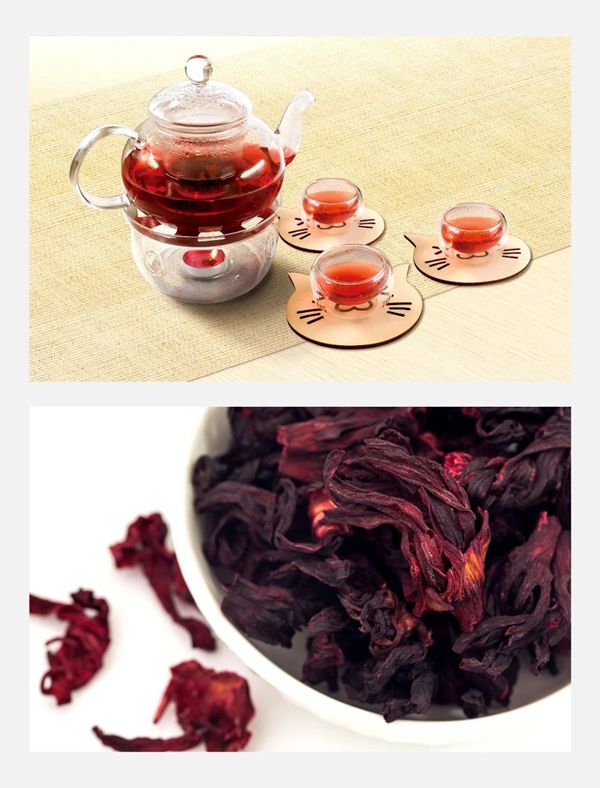This Is A Comprehensive Guide
Ref. Source:[1][2]
Introduction
Hibiscus tea, also known as sorrel tea or “sour tea,” is a fragrant herbal tea made from the dried calyces of hibiscus sabdariffa flowers. It has been enjoyed for centuries in various cultures for its refreshing fruity flavor and potential health benefits. In this article, we will explore the numerous benefits of hibiscus tea, supported by scientific research and expert opinions.
1 Packed with Antioxidants
Hibiscus tea is rich in antioxidants, such as beta-carotene, vitamin C, and anthocyanins. These compounds help protect the body against harmful free radicals, which can cause cell damage and contribute to various diseases, including cancer, heart disease, and diabetes.

2 Lower Blood Pressure
Several studies have shown that hibiscus tea may help lower both systolic and diastolic blood pressure. Drinking hibiscus tea regularly has been found to have a positive impact on individuals with hypertension, although it is not recommended as a replacement for blood pressure medication.
3 Support Heart Health
In addition to lowering blood pressure, hibiscus tea may also help improve blood fat levels, including reducing cholesterol and triglyceride levels. Maintaining healthy blood fat levels is crucial for heart health and reducing the risk of heart disease.
4 Aid in Weight Loss
While hibiscus tea cannot single-handedly cause weight loss, several studies have shown that it may have a positive impact on weight loss efforts. Hibiscus tea has been found to help reduce body weight, body fat, and body mass index. However, more research is needed to fully understand its effects on weight management.
5 Boost Immune System
Hibiscus tea is loaded with vitamin C, which is known for its immune-boosting properties. Consuming hibiscus tea can help strengthen the immune system and reduce the risk of infections and illnesses.
6 Improve Digestion
Drinking hibiscus tea can aid in digestion and support a healthy gut. Its diuretic properties may help with fluid balance and alleviate bloating. Moreover, hibiscus tea has been found to have anti-inflammatory effects, which can benefit individuals with various digestive disorders.
7 Promote Liver Health
Hibiscus tea has shown promise in promoting liver health and protecting the liver from toxins. Studies suggest that hibiscus extract can increase the activity of detoxifying enzymes in the liver, potentially reducing the risk of liver damage.
8 Anticancer Effects
Research has indicated that the polyphenols found in hibiscus tea possess powerful anticancer properties. Studies using hibiscus extract have shown its ability to inhibit the growth of cancer cells in various types of cancer, including mouth, prostate, stomach, and skin cancers. However, more research is needed to determine the full extent of hibiscus tea’s anticancer effects.
Last But Not least:
Hibiscus tea offers a wide range of potential health benefits, making it a worthwhile addition to a healthy lifestyle. From its antioxidant-rich nature to its potential positive effects on blood pressure, cholesterol levels, weight management, and immune system function, hibiscus tea has earned its reputation as a health-promoting beverage. Remember to consult with a healthcare professional before making any significant dietary changes, especially if you have underlying medical conditions or are taking medication. So, sit back, relax, and enjoy a delightful cup of hibiscus tea while reaping its many benefits.
Ref. Source:
- https://www.healthline.com/nutrition/hibiscus-tea-benefits#blood-pressure
- en.wikipedia.org/wiki/Hibiscus_tea

Hibiscus tea recipe
Preparation and ingredients
- 3 hibiscus + 10 Roses
- 200ml water
- Fusing 3-5 minutes
- A spoonful of honey( add more if you like your tea sweeter )



